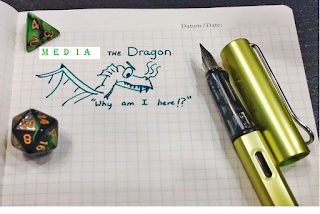It was wonderful working with you. We'll miss your bright and cheerful face around here. Wish you much happiness in all that you pursue! Let us know where the road takes you. . .
Like the rest of the dream team, we are grateful for your many kindnesses and unwavering support during all the years that we worked with you ...
31 January 2020 AD
"How lucky we are to have something that makes saying goodbye so hard.”
-A.A. Milne (Winnie-the-Pooh)
“This is not a goodbye, my darling, this is a thank you.”
-Nicholas Sparks (Lamy Message in a Bottle)
“Nothing makes the earth seem so spacious as to have friends at a distance; they make the latitudes and longitudes.”
-Henry David Thoreau of East Latitude fame
20th Anniversary of the GST in Australia: Where policy meets reality of service ...
(My next book will be entitled " HOW TO GET TALL TOWER TO NOTICE YOU IN 2,024 EASY STEPS — PLUS TWENTY YEARS OF YOUR LIFE." )

Anthony Infanti delivers a lecture on Our Taxing Selves at Pittsburgh today :
Our Selfish Tax Laws builds on my past comparative tax work by providing case studies that demonstrate the expressive function of tax law, showing how the choices made by different countries in constructing their tax laws send messages about what and whom they value that are woven into their cultural fabrics.
Diane Ring (Boston College) presents Falling Short in the Data Age (with Shu-Yi Oei (Boston College)) at Duke today as part of its Tax Policy Workshop Series hosted by Richard Schmalbeck and Lawrence Zelenak:
This Article examines how the increasing access to data and information will change the availability and shape of law’s fall-short spaces. We introduce a taxonomy of how leeway arises, outlining the reasons it exists and the different ways it is deployed. Applying this taxonomy, we show how increasingly ubiquitous data and information have caused and will continue to cause the availability of leeway to contract, and we highlight the risk that we will see disparate contraction for different populations.
Stephanie R. Hoffer (Ohio State), Tax Theory and Feral AI:
This essay is a sci-fi thought experiment about the significance of personhood in income taxation, meant to explore the validity of currently prevailing justifications for the tax. Assume that the year is 2050. Developers, human or otherwise, have created non-sentient artificial intelligences (AIs) capable of transacting in digital currency. Assume, perhaps improbably, that some of these AIs are “feral.” A nonsentient AI might be feral in the future because it was never the property of a human, because it was abandoned by a human, or because it “escaped” into the wild. Imagine that non-sentient feral AIs create new value in the economy by doing things like writing, designing, securities and currency trading, planning, and 3D printing. They monetize that new economic value as active participants in the economy who sell goods or services to consumers. Intuition suggests that the value newly created by these independent economic actors should be included in the tax base and, in particular, the income tax base. Under current law, it is not.
|
|
The ranks of “influencers" are growing as
the number of social media followers required to pique brands' interest
shrinks. A new era of marketing is upon us, and it has upended ideas about
what is an ad and who is a celebrity. Your social profiles could be next.
How the Washington Post pulled off the hardest trick in journalism Columbia Journalism Review. No time to shred this today – so I leave it up to you, dear readers, to do so.
The Enemies of Writing The Atlantic
WE’VE DESCENDED INTO SOME SORT OF BIZARRE HELL-WORLD IN WHICH PIERS MORGAN IS A VOICE OF SANITY: Piers Morgan responds to call for his firing for making a joke after being told there are more than 100 genders. Virginia Woolf on Why We Read and What Great Works of Art Have in Common“Our minds are all threaded together… Any live mind today is of the very same stuff as Plato’s & Euripides. It is only a continuation & development of the same thing. It is this common mind that binds the whole world together; & all the world is mind.”
|





